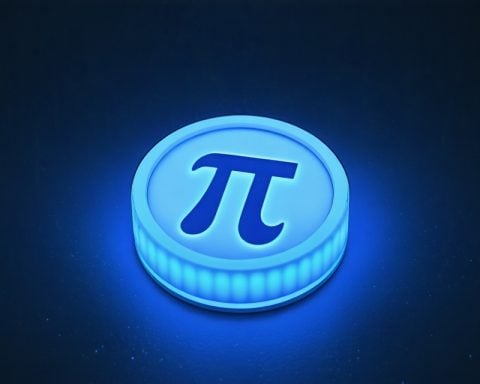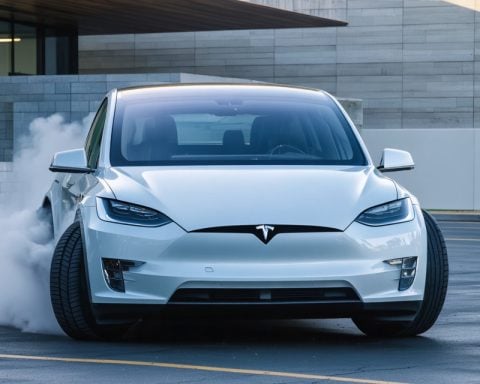In an impactful move, Illinois Governor J.B. Pritzker has unveiled a significant investment aimed at electrifying school transportation. The state plans to allocate nearly $20 million for the acquisition of 70 zero-emission school buses across nine different school districts, marking a pivotal stride towards greener educational environments.
The funding, totaling $19.9 million, is part of the Clean Heavy-Duty Vehicles Grant Program, which leverages federal resources from President Joe Biden’s Inflation Reduction Act. Benefitting districts include the Troy Community Consolidated School District, which will receive the lion’s share with 32 electric buses and necessary charging infrastructure. Additionally, both the Joliet Township High School District and the Zion-Benton Township High School District are set to obtain 10 electric buses each, while other districts will also receive at least one bus along with charging capabilities.
Each bus is valued at approximately $284,000. The initiative also includes provisions for workforce training and support through two new full-time staff members from the Illinois State Board of Education (ISBE), ensuring that the transition is smooth for all involved.
This comprehensive program aims to reduce emissions and enhance air quality in school zones. However, there are questions regarding the potential involvement of manufacturer Lion Electric, which is currently under scrutiny for their progress in the electric bus market. The state’s commitment hinges on meeting established goals, which has added pressure on local manufacturers to ramp up production efficiently.
Illinois Steps Up: Major Investment in Electric School Buses to Pave the Way for Sustainable Transportation
Illinois has embarked on a transformative initiative to electrify school transportation, showcasing its commitment to sustainability and innovation. Governor J.B. Pritzker has announced a substantial investment of nearly $20 million, aimed at acquiring 70 zero-emission school buses for various school districts. This move signals a determined effort to promote greener solutions within the educational environment.
Overview of the Initiative
The funding of $19.9 million falls under the Clean Heavy-Duty Vehicles Grant Program, which utilizes federal support from President Joe Biden’s Inflation Reduction Act. The initiative highlights the importance of transitioning to electric vehicles (EVs) in reducing greenhouse gas emissions and improving air quality, particularly in school zones where children spend significant amounts of time.
Key Benefitting Districts
The districts benefiting from this funding include:
– Troy Community Consolidated School District: Set to receive 32 electric buses and the necessary charging infrastructure.
– Joliet Township High School District: Scheduled to obtain 10 electric buses.
– Zion-Benton Township High School District: Also receiving 10 electric buses.
– Additional districts will receive at least one bus along with charging capabilities to foster an environmentally friendly transportation framework.
Financial and Operational Insights
Each zero-emission bus comes with a price tag of around $284,000, a significant investment that reflects the growing costs associated with advanced electric vehicle technology. Furthermore, the initiative includes provisions for workforce training, underscoring the importance of education and preparation for staff in managing these new vehicles. The Illinois State Board of Education (ISBE) will add two new full-time staff members to ensure the implementation of this program runs smoothly.
Pros and Cons of Electric School Buses
Pros:
– Environmental Impact: Reduction in emissions, leading to improved air quality.
– Operational Savings: Lower fuel and maintenance costs over the buses’ lifecycle.
– Health Benefits: Reducing children’s exposure to harmful pollutants.
Cons:
– High Initial Costs: The upfront investment for electric buses and charging infrastructure can be substantial.
– Charging Infrastructure Needs: Requires proper planning and investment in charging stations.
– Manufacturer Reliability: Concerns exist regarding the capacity of manufacturers, such as Lion Electric, to meet production demands in a timely manner.
Trends in Electric School Transportation
The push for electric school buses aligns with broader trends towards electrification in public transportation. As many states seek to lower their carbon footprints, interest in electric vehicles is likely to grow, paralleling advancements in battery technology and charging infrastructure development.
Market Insights and Future Predictions
The electric bus market is expected to flourish as governments incentivize the transition to cleaner energy. By 2030, analysts predict a significant increase in electric bus adoption across the United States, driven by both local and federal policy support. As school districts transition to zero-emission options, local manufacturers may benefit from increased demand, provided they can meet the necessary production timelines.
Conclusion
Illinois is setting a powerful precedent as it shifts towards a sustainable future in school transportation. The investment in electric school buses is not only a win for environmental health but also an investment in future generations who will benefit from cleaner air and quieter school zones. This initiative exemplifies a vital step in a nationwide movement toward greener infrastructure.
For more information on sustainability initiatives in education, visit Education.gov.


















